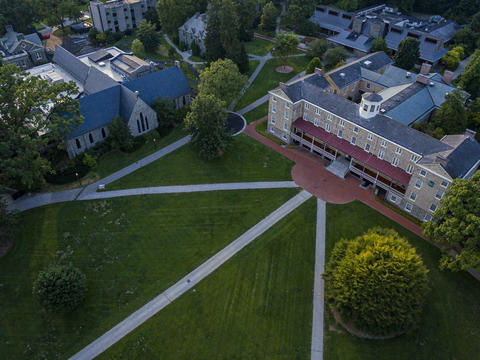Statement in Response to Supreme Court Ruling on Affirmative Action

Details
The following message was sent to Haverford students, faculty, and staff on Thursday, June 29.
Friends:
Today the U.S. Supreme Court handed down its decisions in a pair of much-awaited cases centering on the consideration of race in college admissions. The plaintiffs sought to end affirmative action programs that many schools – including Haverford – have long used in our effort to enroll a diverse student population on campus. Haverford was among a number of colleges and universities that joined an amicus brief in support of the consideration of race as one of many possible factors in admission processes.
In their decisions, the Court determined that race-conscious admissions programs at Harvard and the University of North Carolina are unconstitutional. "Writing for the court’s majority," notes The Chronicle of Higher Education's summary of the cases, "Chief Justice John G. Roberts Jr. said that policies that claim to consider an applicant’s race as one factor among many are in fact violating the equal-protection clause of the 14th Amendment to the U.S. Constitution…The decision reverses decades of legal precedent affirming that a diverse student body is a ‘compelling state interest,’ a stance that had allowed colleges to use race-conscious admissions to reach that goal."
The effect of these rulings will likely mirror what has already happened in states that have imposed race-based prohibitions upon their colleges and universities' admissions processes: there will be a meaningful, and negative, change in the diversity of student populations. As Associate Justice Sonia Sotomayor said in her dissent, "The devastating impact of this decision cannot be overstated. The majority’s vision of race neutrality will entrench racial segregation in higher education because racial inequality will persist so long as it is ignored."
We are deeply disappointed in and disagree with these rulings. As we made clear in an email to campus on May 2, we want to affirm for all members of the greater Haverford community – students, faculty, staff, alumni, and families – that the College is unwavering in its commitment to equitable access to education and to the essential nature of diversity in the collegiate experience in and out of the classroom, and to the responsibility to build diversity across our community.
Notably, the Court has prescribed an approach to admission that is grounded in an individual's qualities – as Justice Roberts wrote, students “must be treated based on his or her experiences as an individual — not on the basis of race." Haverford's approach to education, from admission through graduation, is marked by exactly that: a focus on the individual.
The decisions also leave room for colleges like Haverford to consider how race has impacted an applicant’s life, should an applicant raise the issue. The ruling notes "[n]othing prohibits universities from considering an applicant’s discussion of how race affected the applicant’s life, so long as that discussion is concretely tied to a quality of character or unique ability that the particular applicant can contribute to the university."
Haverford is, of course, committed to compliance with the law. We are confident that we will be able to continue our holistic approach to evaluating admission applications, a process that strives to understand each candidate as an individual and in the fullness of their life experiences and contexts. As our recently completed strategic plan, Haverford 2030, makes clear, we will also continue to assert the central importance of diversity, equity, inclusion, and access to our mission and our ability to provide the best liberal arts education possible.
The Supreme Court’s decisions will create challenges for Haverford. We have been working steadily and thoughtfully, ahead of the Court's rulings, to consider how our approaches in multiple areas – including admission, financial aid, and student life – could be made to align with Court rulings.
We are confident in Haverford's ability to navigate the road ahead in ways that are consistent with our mission and values, as we operate within the law.
Sincerely,
Wendy Raymond, president
Jess Lord, vice president and dean of admission and financial aid
Nikki Young, vice president for institutional equity and access



